Luis Fernandes, Deputy Minister of Science, Technology and Innovation and a member of Vasco da Gama’s Advisory Committee, accompanied the Prime Minister and his spouse during their visit to the club’s heritage room and Estádio São Januário, which seats 25,000 spectators and serves as the club's main stadium.
At the stadium, the Prime Minister and his spouse received Vasco da Gama football kits as gifts from the club and in return presented Hanoi Football Club jerseys.
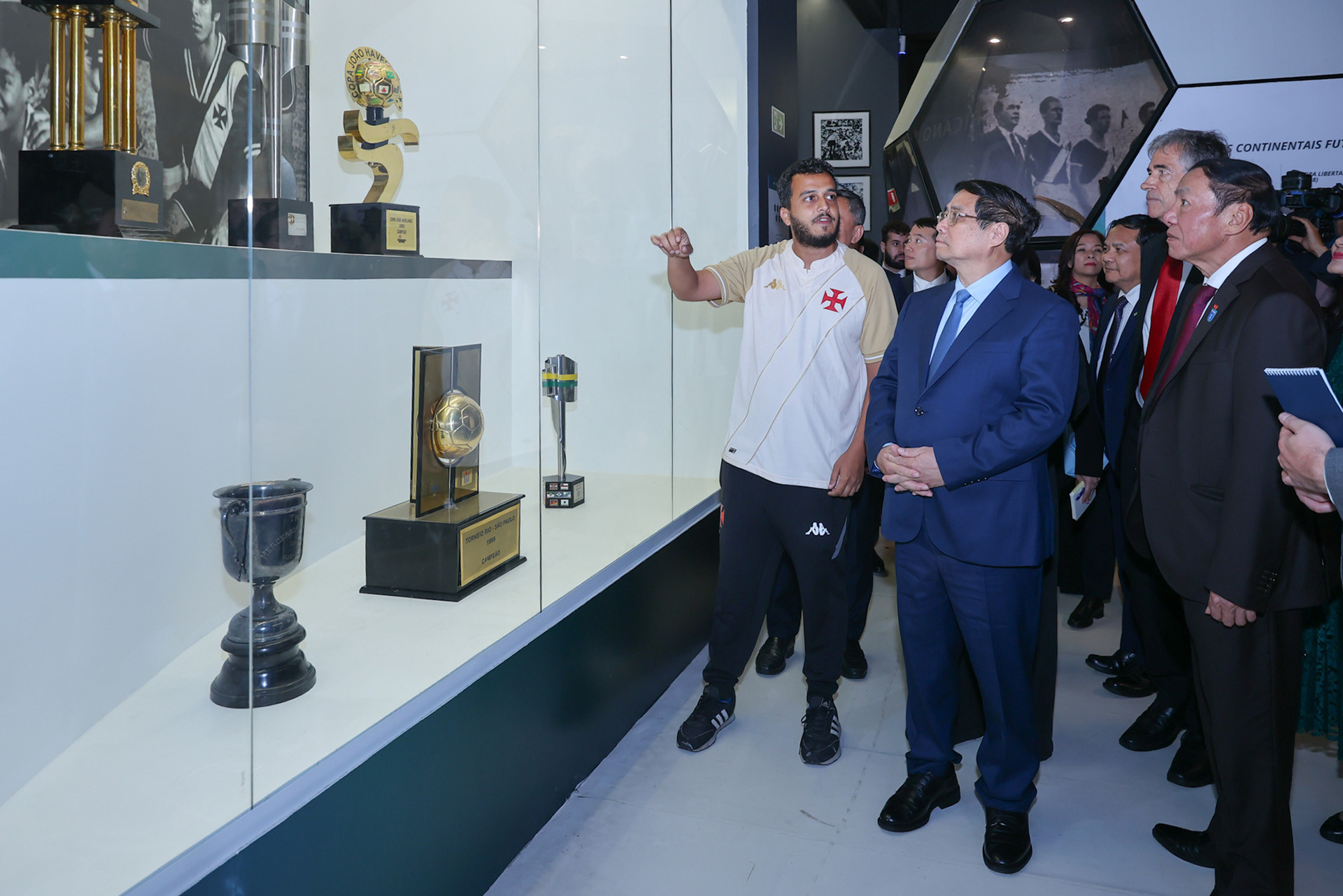
Founded in 1898 and named after Portuguese explorer Vasco da Gama, the club initially began as a rowing organization before expanding into other sports such as basketball, swimming, and notably football.
Vasco da Gama officially joined football in 1915 and has since become one of Brazil and South America's most historic and successful clubs, boasting a vast fan base.
To date, the club has earned 65 titles, including four Brazilian national championships, one Brazilian national cup, and over 20 titles in the Carioca league. Internationally, it has claimed the Copa Libertadores, the South American Club Championship, and was a runner-up in the FIFA Club World Cup.
The club has been home to legendary players such as Roberto Dinamite, Edmundo, Romário, Juninho Pernambucano, Bebeto, and Mauro Galvão. Romário, in particular, helped Brazil win the 1994 FIFA World Cup and was among the world’s top strikers during the 1990s.
Vasco da Gama also holds historical significance as one of the first Brazilian clubs to fight against racial discrimination in football, becoming a pioneer in recruiting Black players and laborers.
Despite facing challenges in recent times, Vasco da Gama remains a cornerstone of Brazilian football and is entering a new growth phase supported by its passionate fan base.
Prime Minister Pham Minh Chinh expressed admiration for the club's rich history and accomplishments. He noted that Vasco da Gama is a favorite of Brazilian President Lula da Silva and continues to be an integral part of life not only in Rio de Janeiro but globally. He emphasized that Estádio São Januário is not just a venue for top-tier matches but also hosts major political and cultural events in Brazil.
The Prime Minister highlighted that Vasco da Gama symbolizes anti-racism and multiculturalism with its people-centered philosophy: football is not a sport reserved for the wealthy, but for everyone, echoing the broader principle of equal access to all sports.
He also emphasized that this football philosophy mirrors Brazilian cultural identity and aligns closely with Vietnamese values: relentless effort, dedication, intelligence, finesse, and passion. While competition and victory are important, he stressed that commitment, enjoyment, and sharing are equally vital.
The Prime Minister noted that many Brazilian-origin players have contributed to Vietnamese clubs’ success, with some helping their teams secure championships.
Stating that Vietnamese people are passionate football fans and deeply admire Brazilian football's "Samba style on the pitch," Prime Minister Pham Minh Chinh highlighted the limitless potential for cultural and athletic collaboration between Vietnam and Brazil, particularly in elite sports like football.
He proposed enhanced cooperation between Brazil and Vasco da Gama to support the development of Vietnamese football, including training, coaching, improving player fitness and skills, strengthening management, brand building, resource mobilization, event organization, and the mutual exchange of players between the two countries.
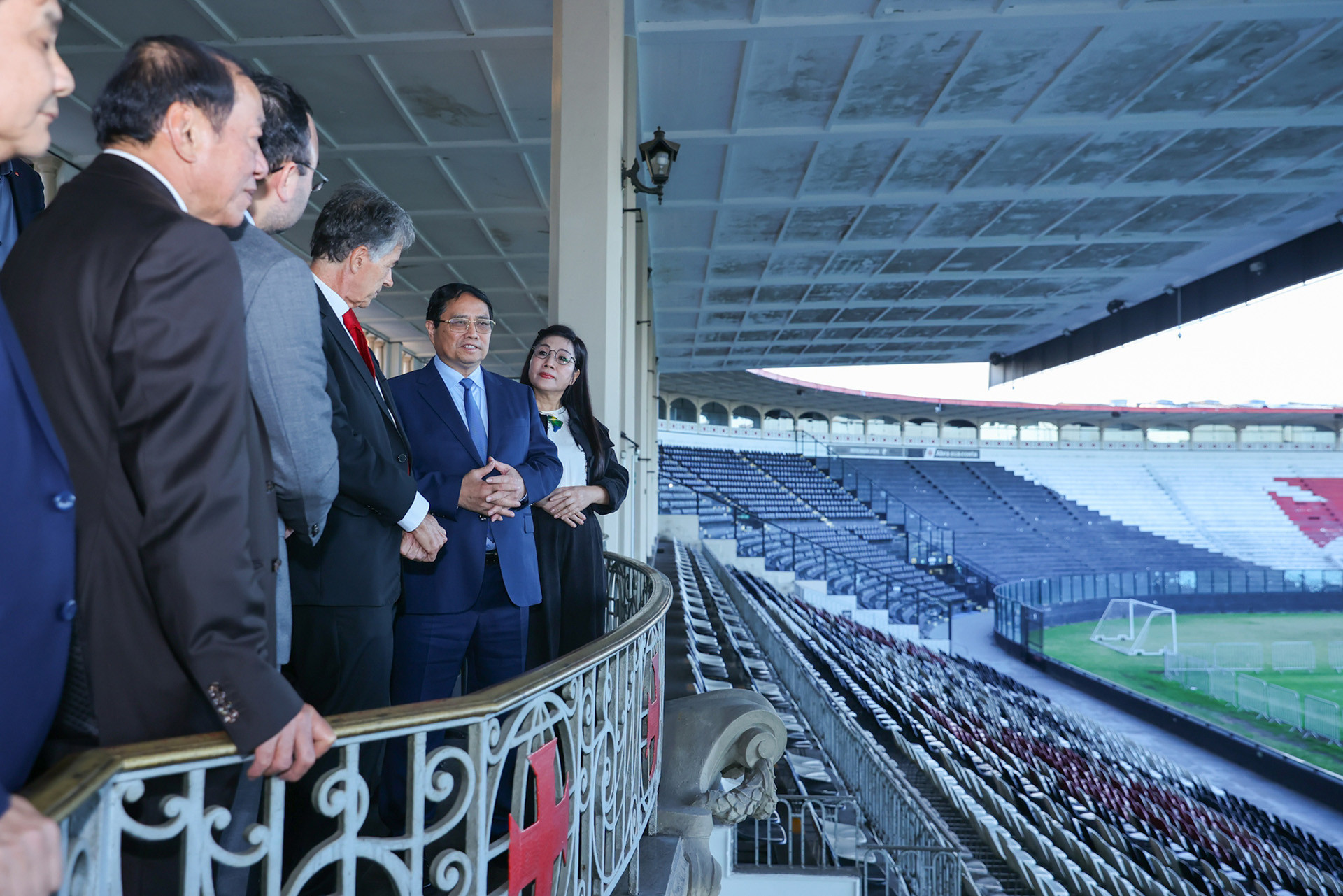
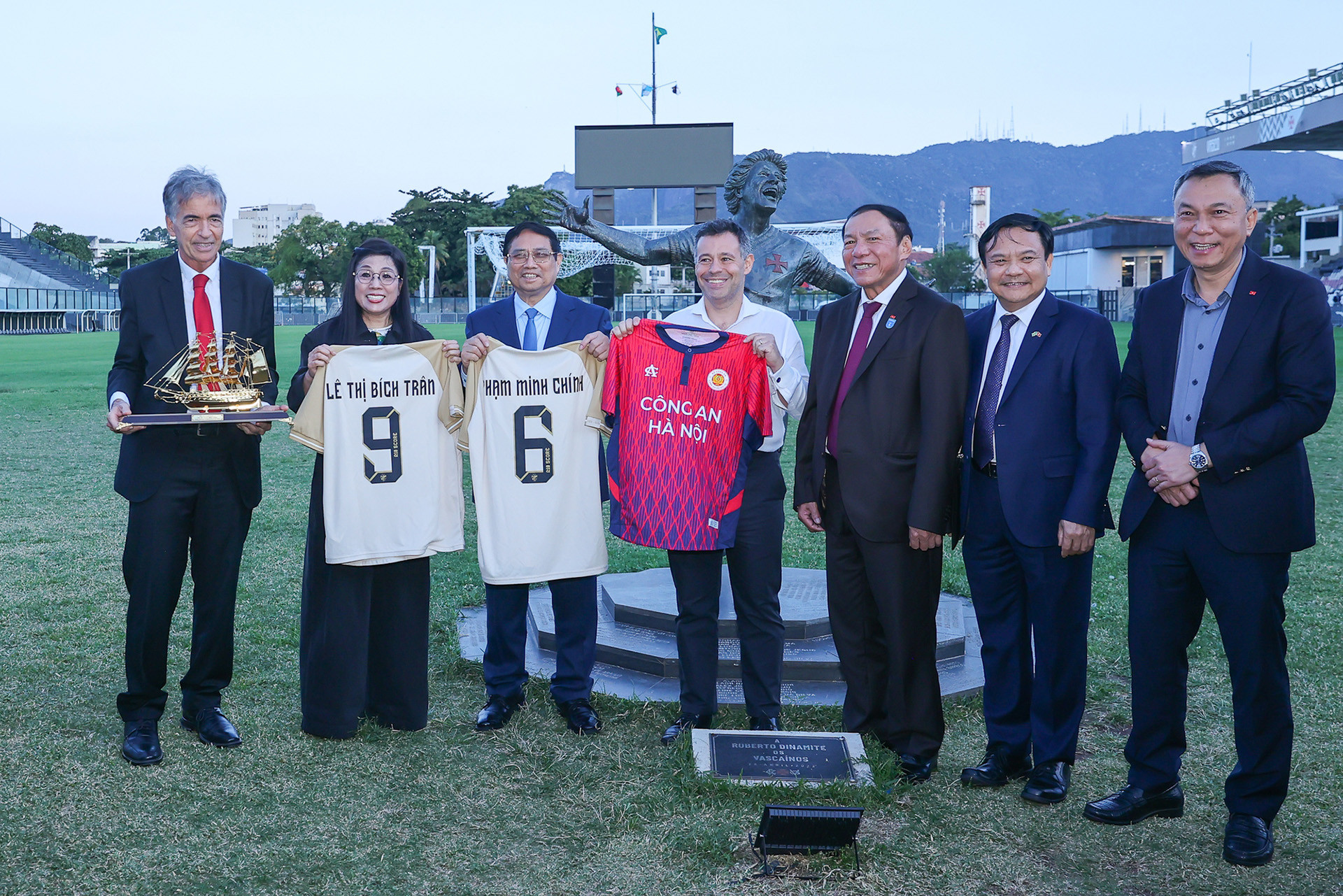

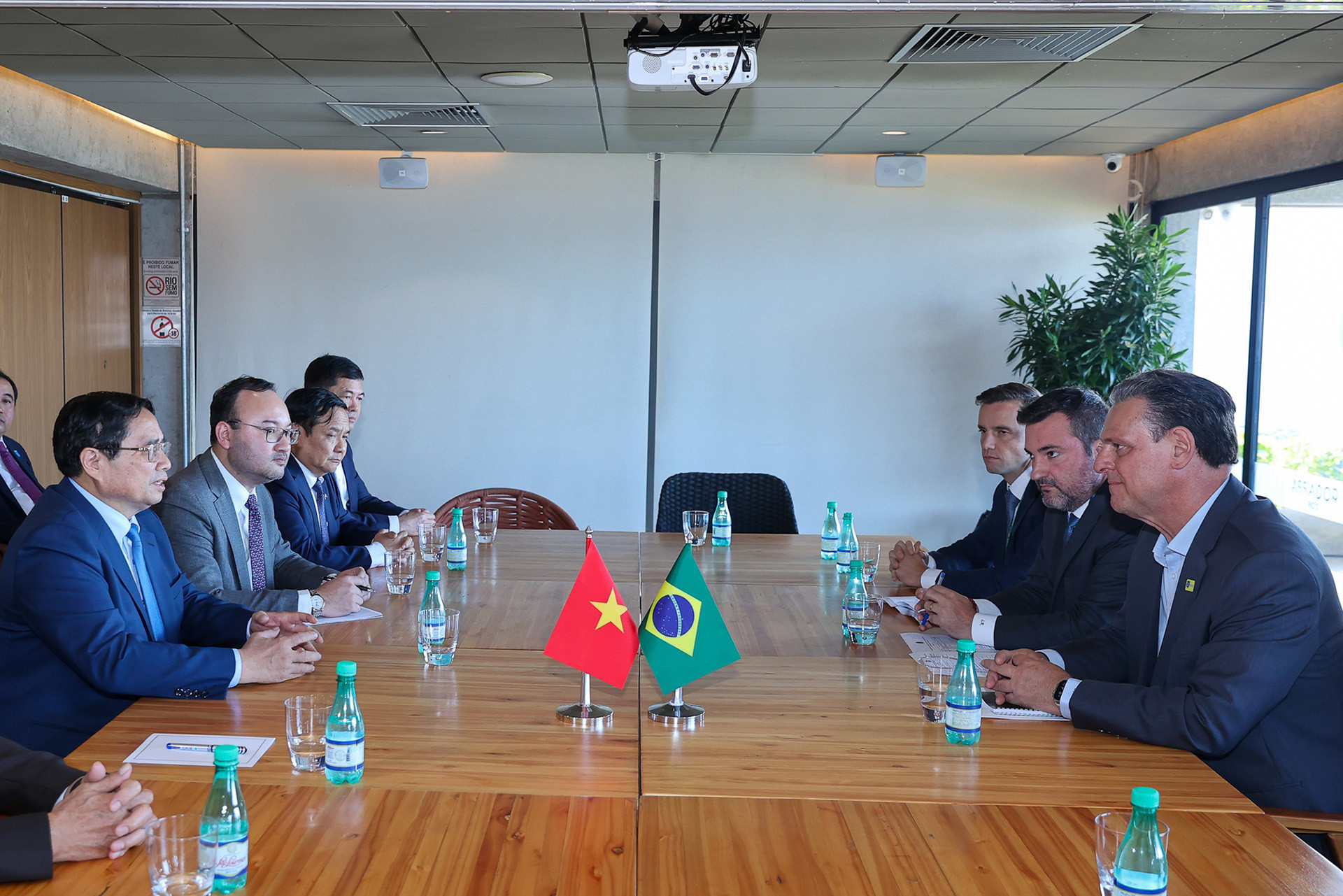
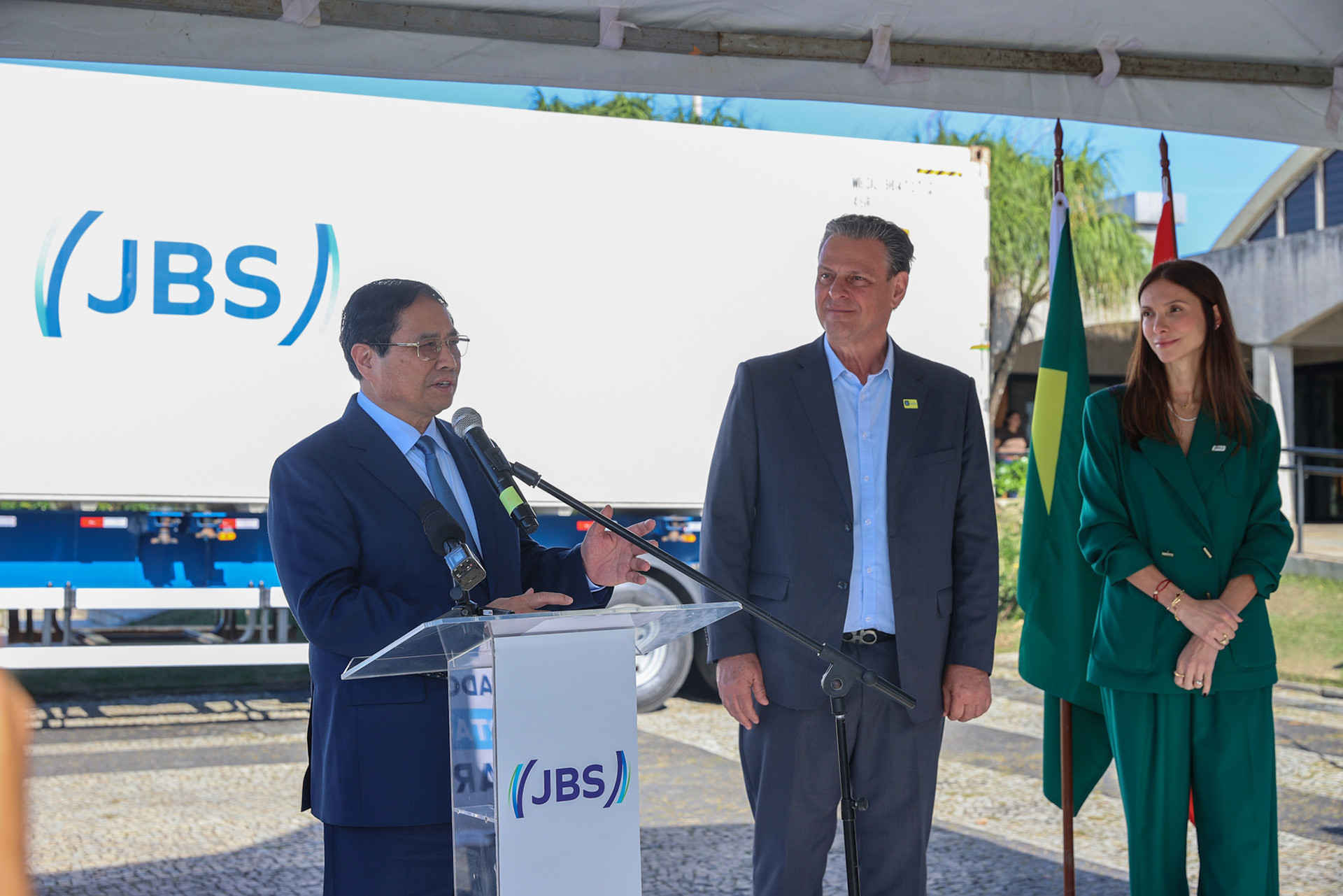

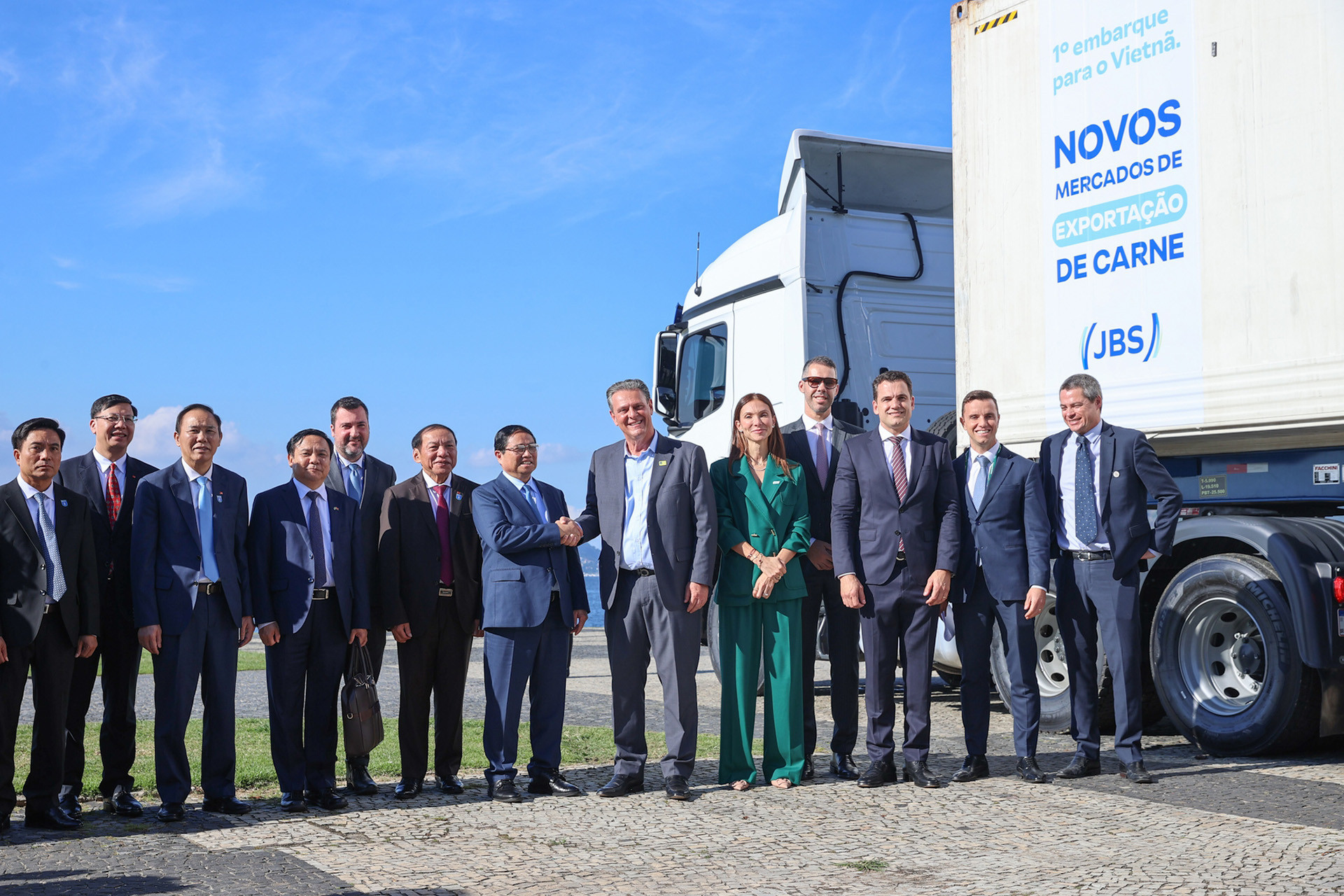
VGP